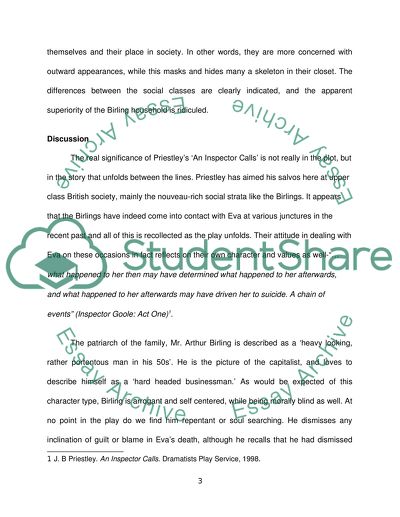Cite this document
(“An Inspector Calls by J.B. Priestley Coursework”, n.d.)
Retrieved de https://studentshare.org/english/1434297-an-inspector-calls-by-jb-priestley
Retrieved de https://studentshare.org/english/1434297-an-inspector-calls-by-jb-priestley
(An Inspector Calls by J.B. Priestley Coursework)
https://studentshare.org/english/1434297-an-inspector-calls-by-jb-priestley.
https://studentshare.org/english/1434297-an-inspector-calls-by-jb-priestley.
“An Inspector Calls by J.B. Priestley Coursework”, n.d. https://studentshare.org/english/1434297-an-inspector-calls-by-jb-priestley.


